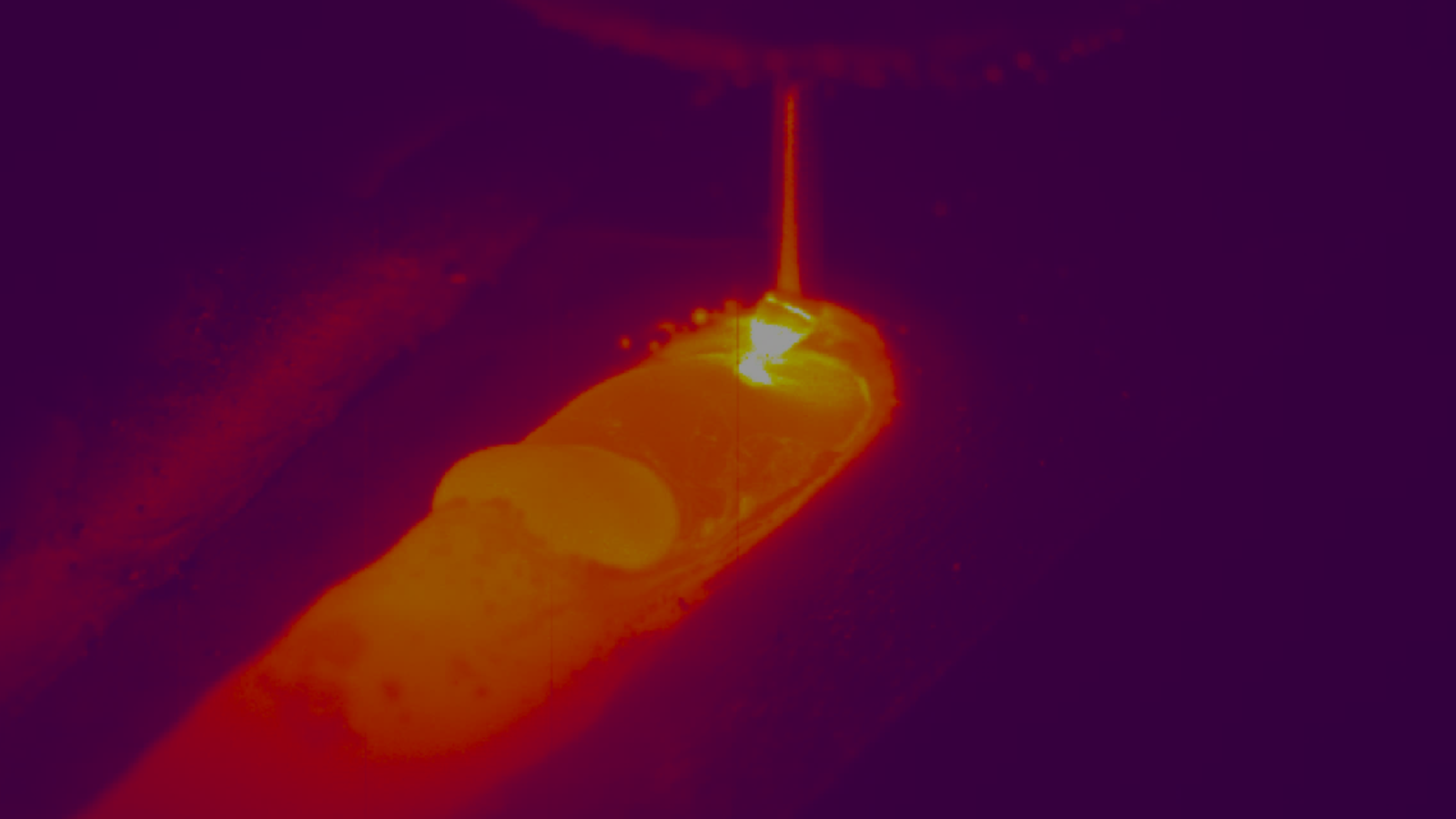Over the years the Xiris team has had the opportunity to work and collaborate with exceptionally talented members of the welding community. From students, to welding operators, to community thought-leaders, we are grateful for these conversations and the opportunity to learn from a diverse group of passionate welding professionals. We’d like to start sharing these conversations and stories with our readers, and spotlight members of our network as our way to help contribute to and strengthen our welding community.
Recently, we sat down with Mackenzi Johnston, a welding student at the University of Alberta and instructor at the Canadian Centre for Welding Joining. We had the opportunity to explore welding from the perspective of a hardworking and bright student, and learn from her experiences. Mackenzi shared with us that prior to using one of our weld cameras, she “never fully understood the nitty-gritty details of what was happening" when she welds. However, after experiencing the XVC-1000 weld camera in action, Mackenzi states that she gained another perspective of welding through added detail and clarity of the weld process.
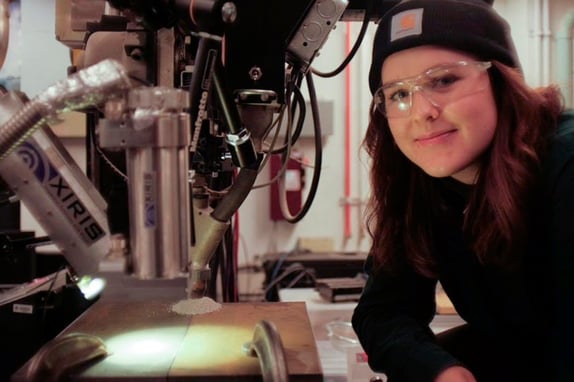
Mackenzi is a student who has a strong passion for exploration and freedom. She told us, “I have always been so inspired by space and engineering, which influences my thoughts as I have a natural tendency to think and do engineering design.”
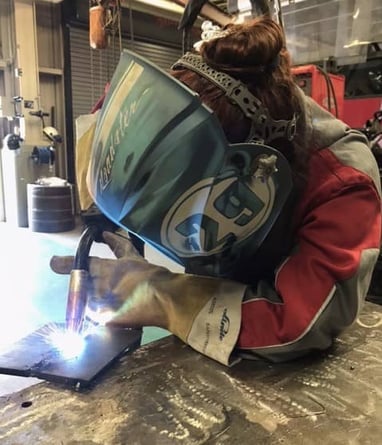
Growing up, she was very well versed in handwork around the house. Her father always encouraged her to help with fixing vehicles and working with her hands. This helped her realized that hands-on work was something that she wanted to pursue in her future studies and career, combining her two passions for engineering and hands-on work. After two years of studying Engineering, Mackenzi left the University of Ottawa because she felt “disconnected with her hands,” as there were no opportunities to work on hands-on projects. This led her to try an introduction to a welding course at the Southern Alberta Institute of Technology, where she quickly fell in love with the trade. She said, “I worked with making steel coupons, oxyacetylene, and basic welding principles and immediately got hooked.”
However, during this class she noticed that she was also the only female and felt she needed to prove herself to her male classmates. She tells us that, “I never was included, I would watch all the men talk to each other, get coffee, and I was never invited.” Although challenging, it drove her to better her skills and focus on her schooling. With the help of her welding instructor and her personal drive for excellence, Mackenzi graduated among the top of her class.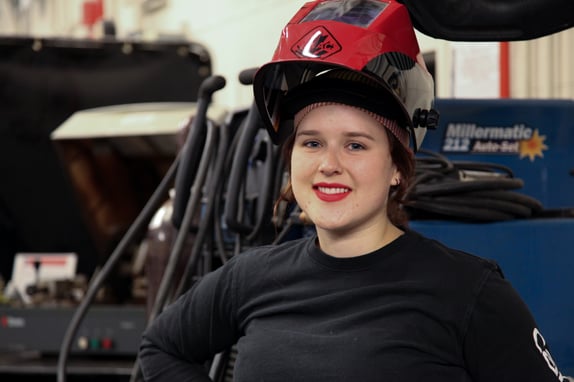 This led Mackenzi to the University of Alberta, where she was able to elevate her welding career as well as make a difference in the industry. She conducted research under the guidance of Dr. Patricio Mendez at the Canadian Centre for Welding Joining and later taught a group of women the basic welding fundamentals of welding. It was her time in welding education that sparked her passion and admiration for teaching.
This led Mackenzi to the University of Alberta, where she was able to elevate her welding career as well as make a difference in the industry. She conducted research under the guidance of Dr. Patricio Mendez at the Canadian Centre for Welding Joining and later taught a group of women the basic welding fundamentals of welding. It was her time in welding education that sparked her passion and admiration for teaching.
She said, “I could see their passion be ignited and see confidence growing class by class. It was so rewarding to give that to fellow women who wouldn’t have had that opportunity before.” Currently Mackenzi and her partner Jolene Borelli run The Red Bench, an organization that strives to create opportunities to connect women to trades and technology in space they can call their own. “By giving women access to a fully equipped workshop where they can learn new skills, women in trade are now more empowered, confident and encouraged to do whatever they put their mind to,” says Mackenzi. “To me, it is all about helping to make a difference no matter how little or big.”
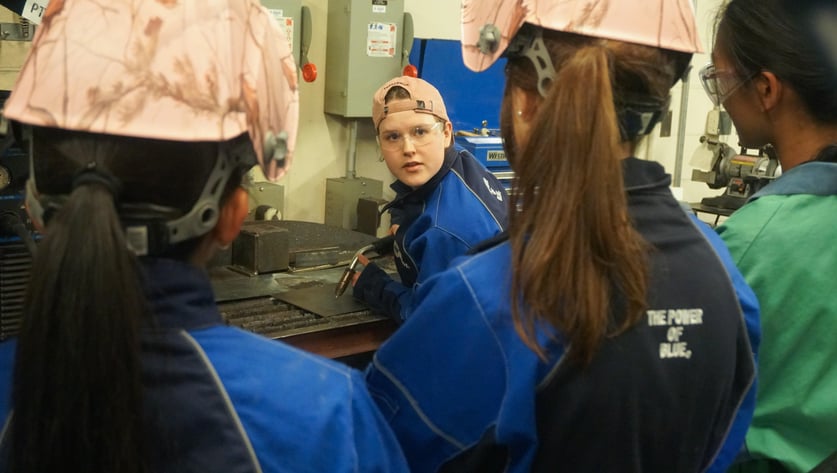
Her advice to students pursuing welding is, “try as many welding sessions as possible. It is your time to learn and ask as many questions as you can.” She also went on to encourage women in the industry to “advocate for yourself, unapologetically ask your questions, be confident and let the pressure drive you.” For those who are educators in the welding industry, Mackenzi’s advice is to “be present and mindful when you have a group of students. Create an uplifting and supportive environment through conversations and learning with each other.”
Finally, we asked Mackenzi what she wants to see differently in the welding industry over the next 10 years and how the welding community can help. She said, “As of right now, the welding industry can be a challenging place for minorities to learn and grow. To change this, companies should work on creating welcoming cultures that are built around empowering their employees. You can't force diversity, you have to start building it internally, and then people with diverse backgrounds will want to work for you.”
We at Xiris thank Mackenzi for sitting down with us and sharing her story and advice. We are committed to empowering strong women like Mackenzi help us change the welding industry for the better. To find out more information about The Red Bench, please contact them directly at theredbench.ca.



.png)

.png)
